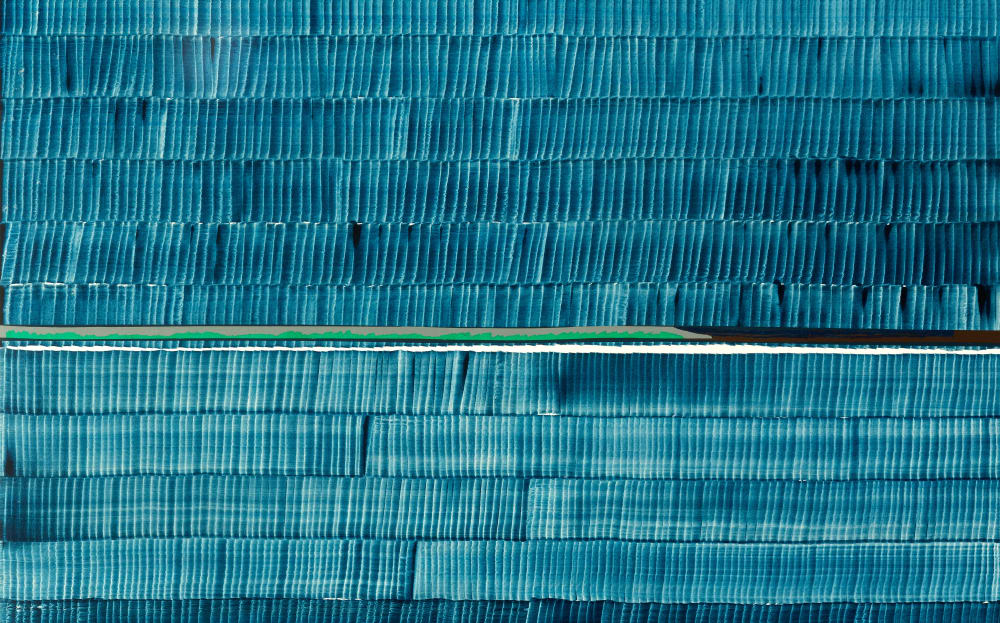Mar de Aral: JUAN USLÉ
-
Introduction
At the center of Juan Uslé’s exhibition Mar de Aral are new, large-format works. Since the end of the 1990s, the Spanish artist has been working, in no particular order, on the series Soñé que revelabas (“I dreamed that you appeared”), which represents the largest coherent group of works within his diverse oeuvre. In it, Uslés poetic emotional conceptualism comes to light, as the artist not only inquires into the structure of the painterly process within abstraction, but simultaneously allows the subjective experience and feeling to flow into it.
In predominantly black-and-white paintings, which always are created at night, Uslé works with extremely reduced painterly means. Color and ductus are limited to the slightest and the tension of the works results from minimal changes in tonal value and contrasting horizontal layers, slightly differing in brushstrokes. On always vertical canvases, bright streaks of color create highlights on the grey, vibrating chord. Each painting develops from the permanent repetition of a brushstroke, which from line to line fills the surface and provides a distinct transparent planarity. Every mark of the brush is charged with an existential corporeality, as the artist rhythmically transfers his heartbeat onto the canvas.
“Uslé has taken the brush imprint that represents nothing but itself – an invocation of the great historic longing in painting for the absolute absence of mimetic reference, for pictures that do not imitate anything – and turned it into a sort of painterly cardiogram, a work that reflects and responds to the history of painting and may at once be read as a self-portrait in a very elemental sense," Stephan Berg explains in the catalogue for Uslé's exhibition at the Kunstmuseum Bonn in 2014.
-
Installation Views
-
Works
-
Inquire about works by Mar de Aral

-
Artists on view













